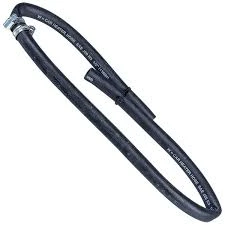Advantages of Flexible Fuel Lines in Automotive Applications and Their Role in Performance
ส.ค. . 20, 2024 22:45 Back to list
Advantages of Flexible Fuel Lines in Automotive Applications and Their Role in Performance
Flexible Fuel Lines in Automotive Applications An Overview
In the modern automotive industry, where innovation continuously shapes vehicle design and functionality, the components that ensure fuel efficiency and engine performance play a critical role. Among these components, flexible fuel lines are becoming increasingly important, serving as crucial conduits for fuel delivery while accommodating the diverse demands of various engine types and operational conditions.
Understanding Flexible Fuel Lines
Flexible fuel lines are tubes made from materials designed to withstand significant pressure and temperature variations while maintaining their structural integrity. Commonly employed in vehicles that utilize gasoline, diesel, or alternative fuels, these lines must not only effectively transport fuel but also resist degradation from chemical exposure, heat, and physical wear.
The primary materials used for flexible fuel lines often include rubber and thermoplastic elastomers, which provide flexibility while ensuring strength and durability. The choice of material is essential, as it directly impacts the line's performance, longevity, and safety. With the rise of biofuels and other alternative fuel sources, manufacturers are also tasked with developing fuel lines that can handle both conventional and non-traditional fuels without compromising integrity or performance.
Advantages of Flexible Fuel Lines
One of the most significant advantages of flexible fuel lines is their versatility. Unlike rigid piping systems, flexible lines can adapt to the spatial constraints and vibrations present within a vehicle’s engine bay. This adaptability allows for easier installation and routing, reducing the risk of kinks or pressure drops that can occur with more rigid materials.
Moreover, flexible fuel lines contribute to weight reduction in vehicles. As regulatory measures push for lighter, more fuel-efficient vehicles, the demand for lightweight components grows. Flexible lines often weigh less than their rigid counterparts while offering similar or superior functional performance.
flexible fuel line automotive

Safety Considerations
While the benefits of flexible fuel lines are substantial, ensuring safety is paramount. These lines must be manufactured to meet stringent industry standards, addressing issues such as fuel leaks, which can pose significant safety hazards. Advanced manufacturing processes and materials science are employed to enhance the quality and resilience of these lines, ensuring they can withstand not only the pressures exerted by fuel but also the extreme operating conditions of an engine.
Regular maintenance and inspection of flexible fuel lines are also essential. Technicians are encouraged to check for signs of wear, such as cracking or warping, which may indicate a need for replacement. This proactive approach helps prevent potential failures that could lead to costly repairs or dangerous incidents.
Future Developments
As the automotive landscape evolves, so too will the technology surrounding flexible fuel lines. With the growing emphasis on sustainability and the transition to electric and hybrid vehicles, the materials and designs used in fuel line fabrication are likely to advance. Innovations may include the development of bio-based materials or composite technologies that enhance performance and reduce environmental impact.
In addition, as vehicles incorporate more sophisticated fuel systems, such as direct injection and alternative fuels, the next generation of flexible fuel lines will need to support these technologies without compromising efficiency or safety. The ongoing research into improved materials and designs is poised to play a significant role in meeting these future automotive challenges.
Conclusion
Flexible fuel lines are an essential component of automotive design, playing a vital role in the efficient and safe delivery of fuel to engines. As industry standards evolve and new technologies emerge, the development of these fuel lines will undoubtedly adapt, continuing to enhance vehicle performance while meeting the demands of an ever-changing automotive landscape. The future of flexible fuel lines looks promising, with a focus on innovation aimed at increasing efficiency, safety, and sustainability in the automotive sector.
